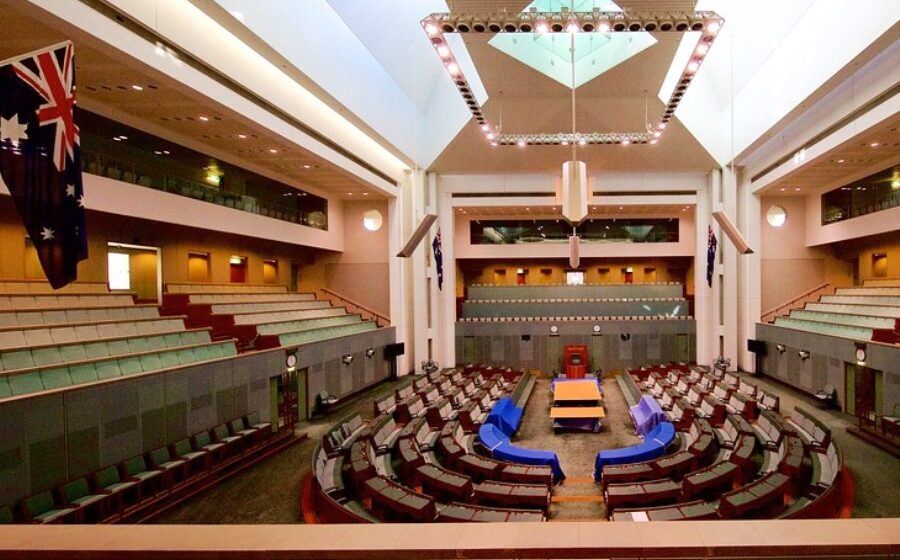Australia is on the brink of a nationwide COVID-19 outbreak with the National Security Committee set to meet today to deal with the escalating situation.
Millions are starting the week under new restrictions, as state and territory governments take action to slow the spread of the virus.
Sydney residents are today entering their first full week of lockdown, with the Bondi cluster now at 110 and more than 143 listed exposure sites.
Meanwhile, Queensland, Perth and Darwin have also introduced public safety measures as states record new cases of community transmission.
Borders are slamming shut with South Australia closing to multiple states, WA strengthening controls with the NT, ACT and Queensland and Victoria restricting entry from NSW, Queensland, WA and Darwin.
Here are the latest details on case numbers and restrictions from around the country:
In the nation’s coronavirus epicentre, the number of cases linked to Sydney’s Bondi coronavirus cluster now sits at 110 with Premier Gladys Berejiklian warning worse is yet to come.
Millions in Greater Sydney are now under the strictest lockdown in the country after the outbreak grew by 30 cases on Sunday – the largest jump in cases so far.
There are over 143 listed exposure sites around Greater Sydney with the domestic airport terminal among the latest list of venues on alert for COVID-19.
Anyone living in Greater Sydney is now subject to a two-week stay-at-home order, with residents only able to leave their homes for essential reasons including grocery shopping, exercise, receiving medical care and essential work and education that cannot be done from home.
Here’s a full breakdown of what you can and can’t do in NSW.
Victoria has so far managed to keep the virus out with zero cases announced today and no further restrictions put in place.
However, the state is remaining vigilant, introducing travel restrictions with other states.
The Department of Health announced on Sunday night new restrictions would be introduced for some travellers from Queensland and Western Australia.
From 1am on Monday, June 28, Greater Brisbane in Queensland and the Perth Metropolitan and Peel regions in Western Australia will be designated orange zones under Victoria’s travel permit system.
People who have been in orange zones can obtain a permit to enter Victoria but must isolate on entry, get tested within 72 hours, and stay isolated until they receive a negative result.
All arrivals into Victoria must apply for a travel permit even if they are entering from a green zone.
Any close contacts of a positive COVID-19 case, including anyone who has been to a high-risk exposure site, is not allowed to enter Victoria.
Exceptions and exemptions are listed on Victoria’s travel permit website.
Darwin has also been declared a red zone, restricting non-Victorian residents from entering Victoria without an exemption.
More than 200 officers have been deployed to the border to prevent anyone unlawfully entering Victoria.
Queensland has this morning introduced tighter COVID-19 restrictions after two new cases were recorded overnight.
From 1am tomorrow, masks will be required in the following Queensland LGAs: Noosa, Sunshine Coast, Ipswich, Logan, Redlands, Morton, Brisbane, Gold Coast, the Scenic Rim, Lockyer Valley, and Somerset.
The one person per four square metre rule will also be in effect.
Only 30 people are allowed inside private homes.
Wedding numbers will also be restricted to 20.
At hospitality venues, there is no dancing or standing.
Today’s cases include a female miner from the Sunshine Coast who is confirmed positive with the highly contagious Delta strain, Premier Annastacia Palaszczuk said.
The worker is from Bli Bli, and Ms Palaszczuk said anyone in that Sunshine Coast area should get tested if they feel sick.
Chief Health Officer Jeannette Young said one of the two positive cases was already in quarantine and not of concern.
But the other case, the female miner, had been out in the community for one day while infectious.
“She was with her family and they started a road trip that immediately came back,” Dr Young said.
The woman had visited a “few” service stations and cafes and Queensland Health will notify people of those venues.



